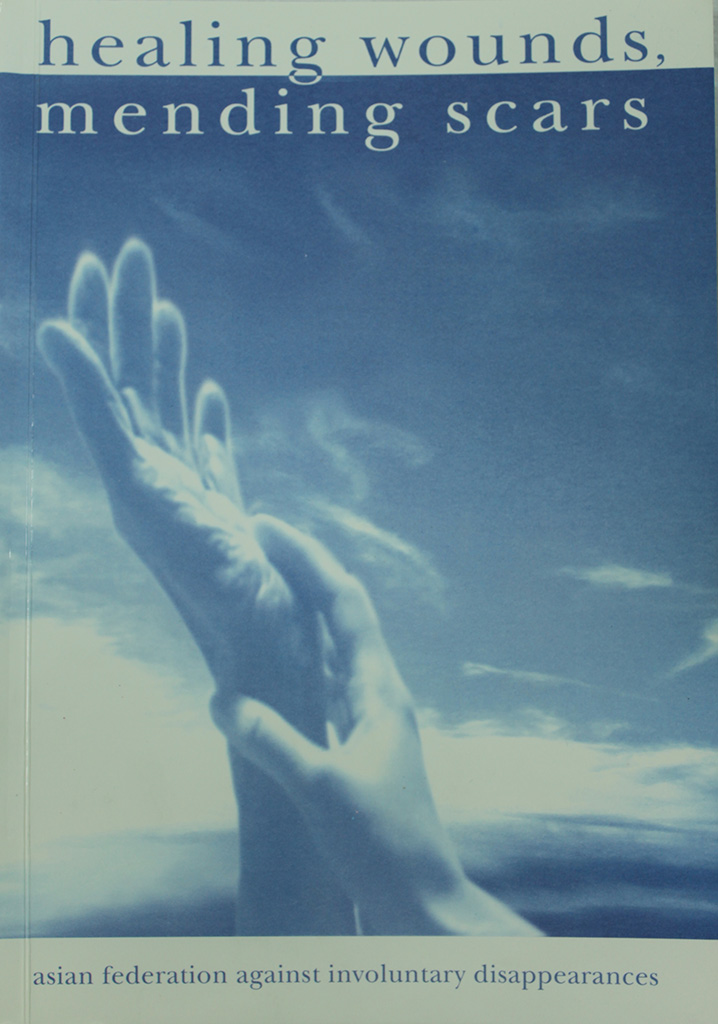L.W. Wijedasa was once active in mainstream politics, being a local leader of the Sri Lanka Freedom Party (SLFP). He is now a district leader of the Organization of Parents and Family Members of the Disappeared (OPFMD) and actively assists in the transformation of human rights victims to human rights defenders.
My son W.N.D. Dammika disappeared on 12 December 1989. He was a 19-year old engineering student, while I was a local leader for the main opposition group SLFP.
One of our neighbors, a barkeeper by trade, was a member of the UNP1. His bar was frequented by army personnel which is why he became very close to them. At that time, the Army was very powerful, with the authority to arrest or kidnap people under the Preventive Terrorism Act (PTA). During their drinking spree, they would usually tell the bar owner, “If you have any enemies, we’ll take care of them for you.”
When he disappeared, my son was at the bus station accompanied by his grandparents and elder brother. While waiting for the bus, my son went to a nearby store but after several minutes, he didn’t return. It was then that we realized that he was arrested by the security forces.
In our search, we went to all the “legal” detention camps but we failed to find him. We also went to the police station but there was no information about my son. We later realized that it wasn’t the police but the Army which abducted my son.
I also went to Haliela Motors which, I heard, was being used as a torture chamber by the military. It was a big hall, and behind it a small river that leads to the paddy fields. What was significant about this river was that it was always reddish. I later realized that the water’s red hue came from the blood of those who were tortured by the Army. In most cases, soldiers would insert a long plastic wire into the victim’s anus until he vomits blood. This was done allegedly in full view of the other detainees in order to instill fear. Through this method, the soldiers believe they are able to extract a confession. When the victims die, the corpses are then placed in big plastic bags. Despite these revelations however, I was still not able to locate my son.
Another difficulty we faced was that in the city of Badulla where I live, there are four (4) Army detention camps and they would transfer the prisoners from one camp to the other.
After two to three months of searching, I met two of his friends who were also abducted but had been released by their captors. They told me that they had been detained along with my son. Shortly before they were released, Army personnel took my son and brought him to an undisclosed location.
We sought the assistance of the Red Cross in our search for my son. But after some time, we received a letter from them telling us that my son will never come back. It was then that I joined OPFMD, later becoming district leader. I was one of those who assisted Wijayadasa Pathirana in organizing the families of victims throughout Badulla. The organization also gave me back my sense of self-worth, providing me with the awareness on how to prevent possible cases of involuntary disappearance.
Life has never been easy for us. At the moment, my wife has cancer and my own health is slowly deteriorating. But we still go on, knowing full well that justice must be attained for our son.
Piecing together all the information that we have, our family came to the conclusion that my son was abducted at the urging of my neighbor. If not for him, my son would still be around. But the UNP had their comeuppance. In 1994, they were booted out of office and we were able to receive a small amount of compensation from the government amounting to Rps. 25,000 ($240).
Even our UNP neighbor got his just desserts. After my son’s disappearance, he fell ill and lost his sight and died a slow and painful death. I never regretted his demise.
Footnote
1 United National Party—the ruling party in Sri Lanka when most cases of disappearances occurred.

